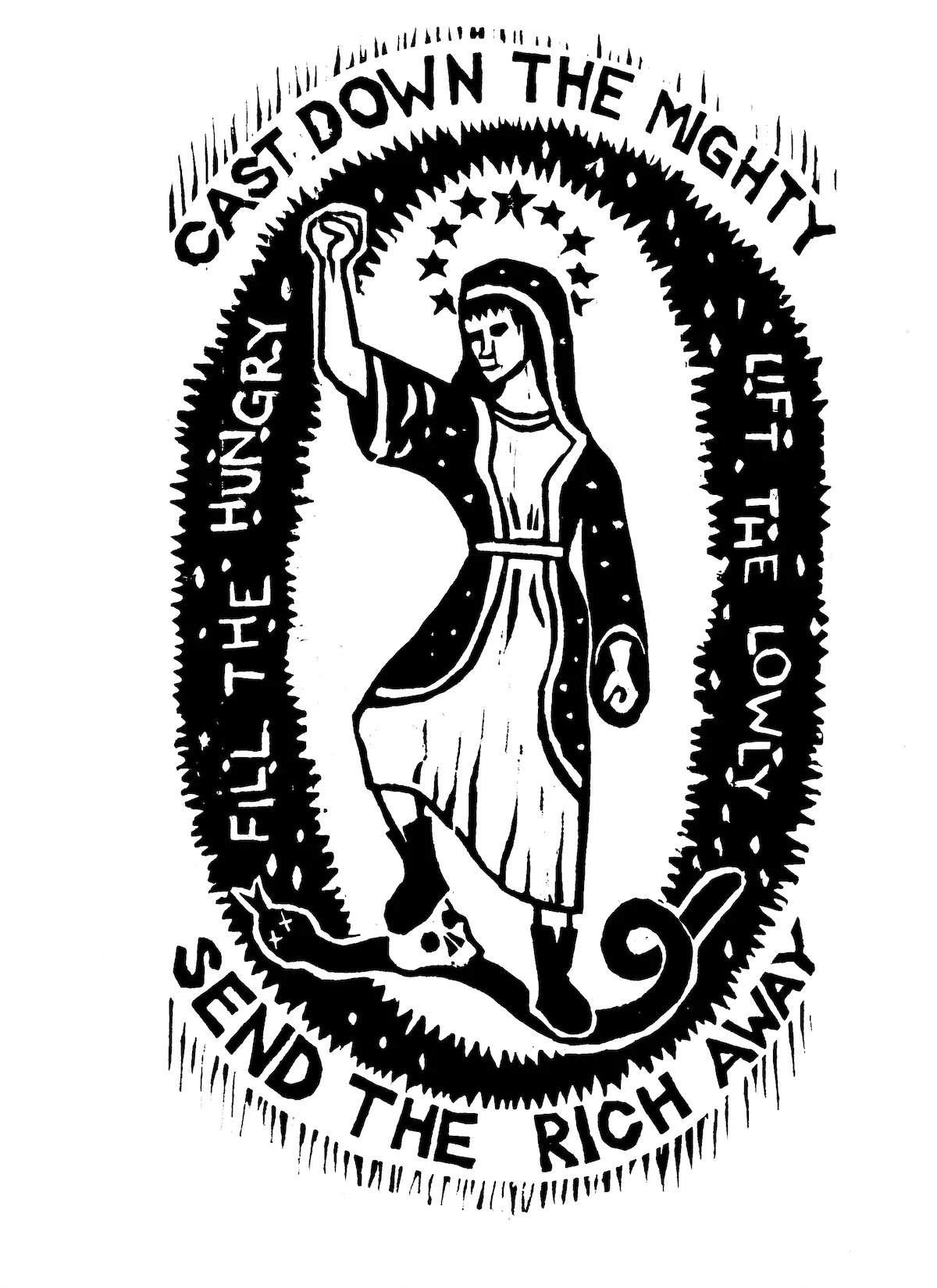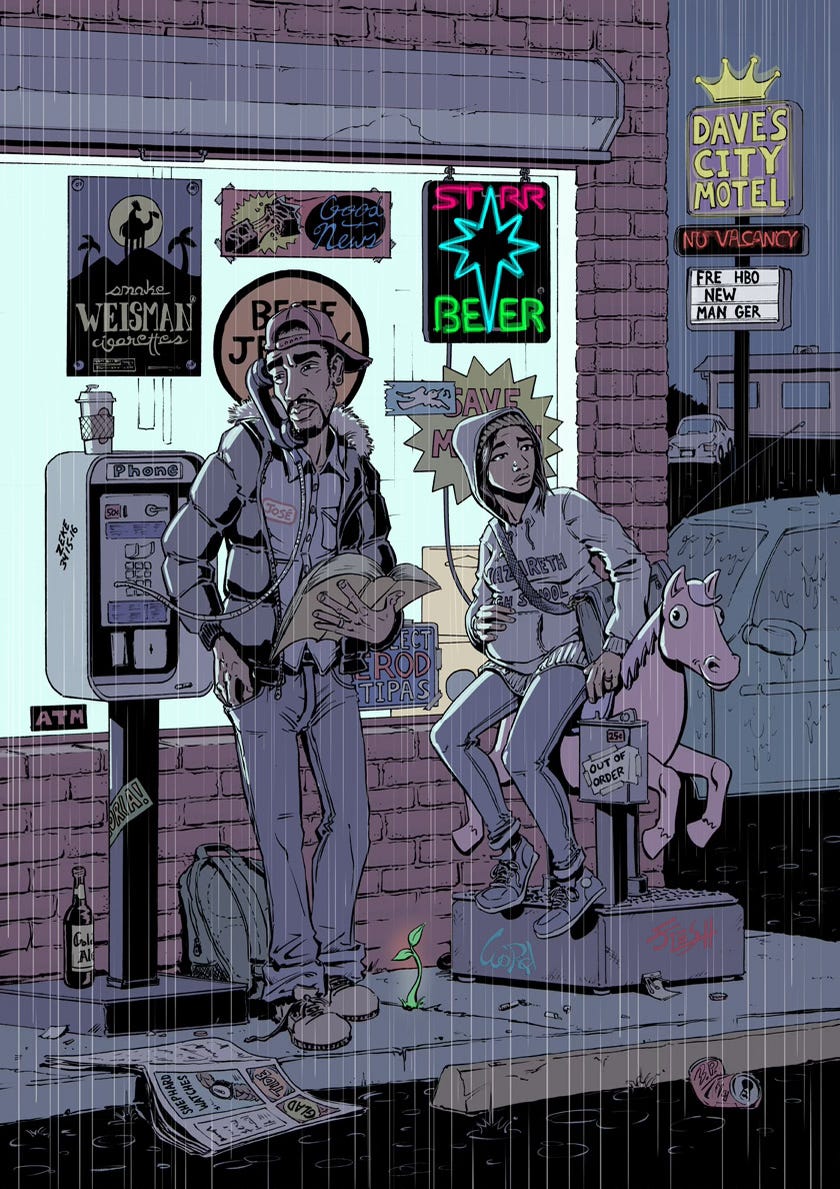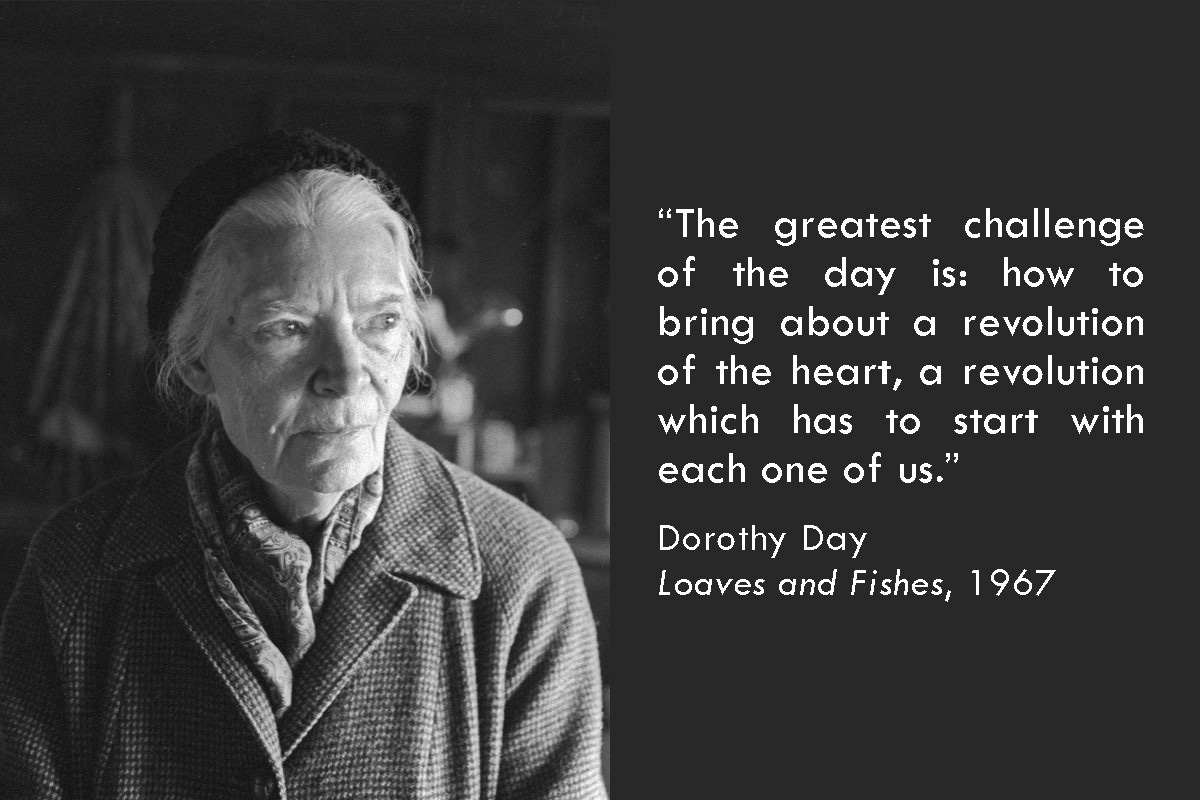I’ve always loved a good musical. Many people think they’re corny, and they’d be absolutely right about that. Musicals hit you over the head narratively, spelling everything out. The opening number is almost always a song where the main character tells you the whole plot of the movie up front; Belle wants more than this provincial life! Gaston is going to make Belle his wife! This doesn’t always make for the most subtle art, but it is very convenient for screenwriters. Here at the beginning of Luke’s Gospel, rather than explain with subtle narrative clues what the birth of Jesus is all about, Luke just has Mary sing it for us. This is very helpful for us readers– we don’t have to guess what the purpose of Jesus’s birth is, we can just listen to the song. It’s all right there.
But her song is surprising. Based on what most of us hear about the theology of Jesus’s birth, you might expect her to sing about the incarnation– that the one true God has become flesh in Jesus. This would be an excellent moment to give us some classic trinitarian theology on Jesus’s divinity. But this song doesn’t say anything about Jesus being God, or how important it is to believe in Jesus to go to heaven. Mary’s song is a politically charged protest anthem! This is a gospel song, but it’s not very much like the ones we usually sing in church. It is a song for the lowly, for those on the underside of history, longing for things to be made right. The gospel according to Mary isn’t about where we go when we die. It’s about how this world gets turned upside down.
Luke 1:46-56
Mary’s Song of Praise
And Mary said,
‘My soul magnifies the Lord, and my spirit rejoices in God my Saviour, for he has looked with favour on the lowliness of his servant. Surely, from now on all generations will call me blessed; for the Mighty One has done great things for me, and holy is his name.
His mercy is for those who fear him from generation to generation. He has shown strength with his arm; he has scattered the proud in the thoughts of their hearts.
He has brought down the powerful from their thrones, and lifted up the lowly;
he has filled the hungry with good things, and sent the rich away empty.
He has helped his servant Israel, in remembrance of his mercy,
according to the promise he made to our ancestors, to Abraham and to his descendants for ever.’
Mary’s song is about a great reversal– the downfall of the mighty, and the exaltation of the lowly. Do you feel that longing? If so, you are close to the heart of God.

This week our country had a brutal reckoning with the righteous anger over the injustice in our inequitable society. Brian Thompson, the CEO of United Healthcare, was assassinated for his role at the top of a diabolical company in a diabolical industry. Although we live in the wealthiest nation in the history of the world, 68,000 Americans needlessly die each year due to a lack of adequate health care. Meanwhile, United Healthcare raked in over $20 billion in profits by denying more claims than any other health insurance provider. In light of the exploitative, death-dealing medical system in the United States, it’s not particularly surprising that many working-class people saw Thompson’s assassination as justice, and have sided with his killer.
This outpouring of support for a literal murderer has caused shock and dismay to many in the elite media class, but it probably makes perfect sense to any of the 100 million Americans drowning in medical debt, or anyone related to someone with cancer or a chronic illness who was denied treatment.
I do not believe this seeming glee was because people love violence and murder. I think it is because we are tired of the world being separated into people who matter and people who don’t. We long to see a society where every life has equal value; a world where CEOs are not treated as essential while others are treated as disposable.
I do not condone violence or celebrate murder. However, like Mary, I long for a great reversal.
Our stratified world is constantly reminding us of who is on the top and who is on the bottom. After the CEO’s killing, a massive manhunt went underway, with a $50,000 cash reward for the killer. Meanwhile, there has been an epidemic of violence against indigenous women and girls in our country for years. Indigenous women go missing at higher rates, are rarely found, and when they are found they are 135% more likely to be unidentified than the bodies of women of other racial groups. They are not avenged with expensive manhunts or cash rewards. Our society says that CEOs matter more than indigenous girls like Mary.
Mary knew what it felt like to be seen as disposable. Mary’s world, like our world, was structured around a hierarchy of power and privilege. Some people mattered more than others. Religious purity, family heritage, land ownership, vocation, ethnicity, gender, education, and age– these are the things that made you somebody who mattered, and Mary struck out in all of the categories! Mary was a teenage girl from the small town of Nazareth, far from the places of power. Nazareth was on the bottom of the totem pole of important places, and teenage girls were on the bottom of the totem pole of important people in Nazareth.

This is why Mary rejoices in her song, because she sees that God’s eyes were not on the palace in Rome, or even the Temple in Jerusalem, but on her: “he has looked with favour on the lowliness of his servant.” Mary was overlooked in her world, but never in God’s world. God cares most about the people the world cares about least.
In Mary’s song, she rejoices that God is at work reversing this gruesome and unequal status quo:
“God has brought down the mighty from their thrones, and lifted up the lowly; God has filled the hungry with good things, and sent the rich away empty!”
I wonder just how Mary came to that conclusion. After all, when Jesus was born, it was poor Mary and Joseph who were ‘sent away’ to give birth in the stables with the animals, while the powerful remained on their thrones. In fact, just a few verses after this, Luke mentions Caesar Augustus, the most powerful ruler in the history of the world, who would exert his power by forcing Mary from her home with his decree for taxation. And Caesars taxes did not fund social services for the common good; they fueled his wars and padded his wealth. And 2,000 years later, the rich have still not been sent away empty; by all accounts they are richer than ever! The Caesars are dead and buried, but evil rulers are still on thrones directing unjust and expensive wars. As I scrolled through memes this week about healthcare insurance companies profiting billions off of the deaths of patients who did not receive care, I am reminded that Mary’s song remains unfulfilled.
Mary is speaking defiantly against the world as it is, and announcing the world as God wants it to be. You might call this an exercise in prophetic imagination. It’s a message of social reversal, causing us to dream of a day when the mighty will be cast down, and the poor lifted up. For centuries, the lowly people of the world have heard hope in this song that has stirred them up to action. In fact, in the last century at least three different governments have banned the public recitation of this text, considering the message too revolutionary.1
So when is this actually going to happen? When will God scatter the proud, fill the hungry, and send the rich away empty? Mary’s song says that this is what the birth and life of Jesus is all about. Although this promise remains unfulfilled, we are meant to move this dream forward in our lives, just as Jesus did in his life. Jesus embodied Mary's song not through force or violence, but through a ministry that constantly elevated the lowly - eating with outcasts, touching lepers, defending the condemned, challenging religious hierarchies, and ultimately surrendering his own life rather than responding with violence.
The Catholic social worker Dorathy Day wrote, "The greatest challenge of the day is: how to bring about a revolution of the heart, a revolution which has to start with each one of us." Jesus brought about a revolution of love– this is what we must also do if we are to follow him and make God’s dream a reality.
The irony is not lost on me that a white, cis-het, middle-class male is expounding on this passage about God being on the side of the lowly. I must not dodge the force of this promise. It’s easy for me to assume that I’m not the proud, the rich, the powerful, the one that needs a bit of scattering and emptying, the one that could use to get kicked off of a throne. But maybe that’s exactly who I am. But if so, this song would still be good news for me. The Gospel is good news for rich and poor alike, but it is not received the same way.
Brazilian theologian Leonardo Boff writes, “God flings the proud of heart to the earth, in the hope that they will be… delivered from their ridiculous vaunting and flaunting, to become free and obedient children of God and brothers and sisters to others.”
The same message that humbles the proud will exalt the lowly–because the message is that we are all children of God– free and equal siblings. In a family, there is no room for some to be rich while others go hungry. A true family does not have lowly people– we all belong to one another. This is what the story of Jesus is all about. If you are ever worried about losing the plot, just go back and listen to the opening number.
As you pray this breath prayer, take a moment to imagine how it would feel to be Mary– impoverished, overlooked, and marginalized as a young indigenous girl under patriarchy and Empire.
What longings were in her heart? What longings are in yours?
Inhale: God casts down the mighty (4 seconds)
-HOLD- (4 seconds)
Exhale: God exalts the lowly. (4 seconds)
Inhale: We are all equal siblings. (4 seconds)
-HOLD- (4 seconds)
Exhale: No one is disposable. (4 seconds)






Wonderfully written. 🤝🏽
That’s the Word. (And thanks for sharing some great other thinkers and DO-ers with us).